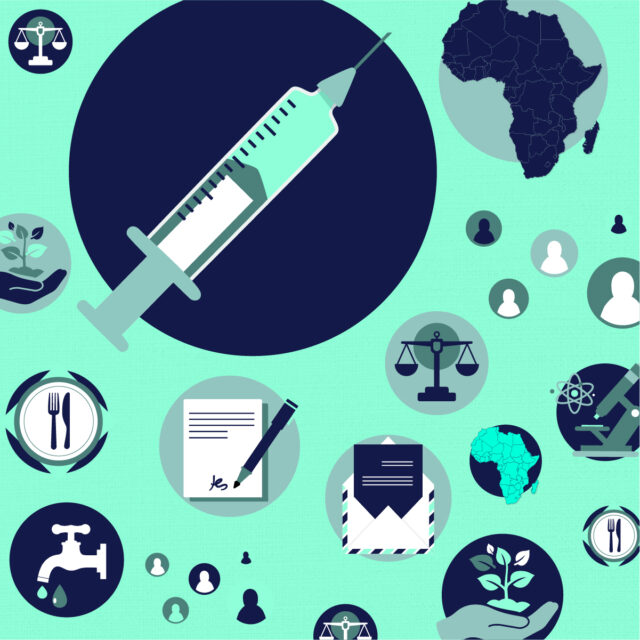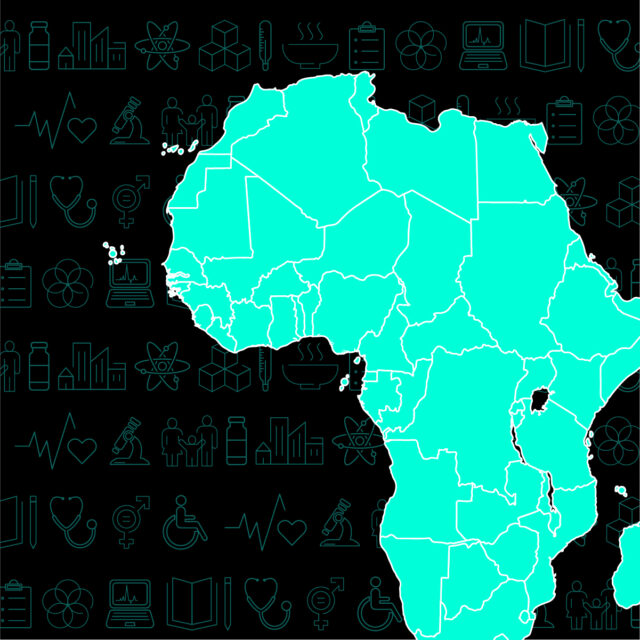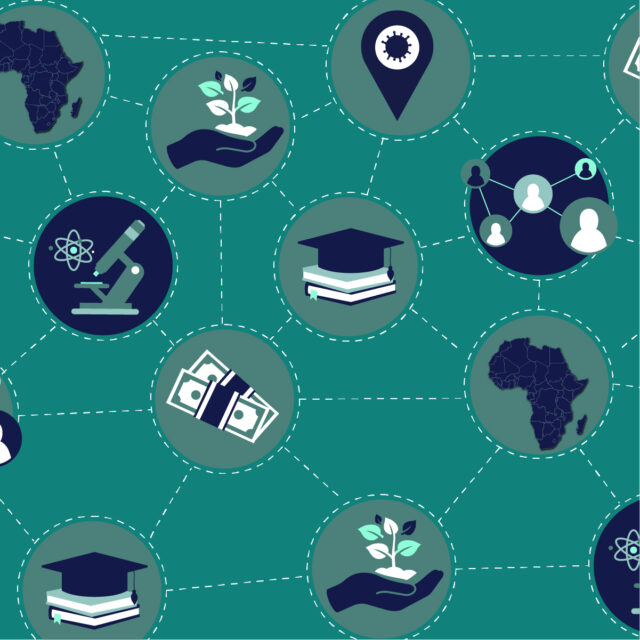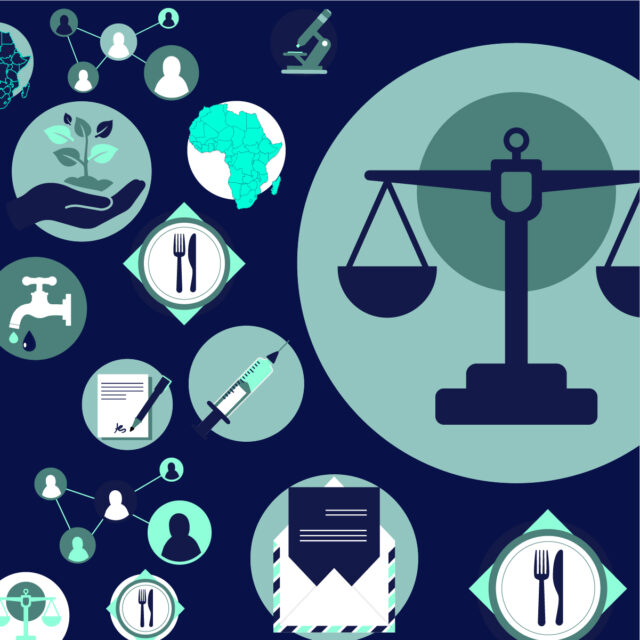Top news
Bounce back bias: Low-income countries’ GDP would have been more than 5% higher in 2021 if they had been able to access vaccines at the same rates as high-income countries. The vaccination of one additional person out of every 100 would have boosted global GDP by 0.10%, according to modeling by the UNDP. While the COVID-19 vaccines have helped high-income countries economically, the growth outlook for low-income countries continues to trend downwards and is 10 times lower than that of upper-middle-income countries.
History repeats: While African countries contend with this inequity-driven reality, Novavax’s first COVID-19 vaccine shipments have gone to rich countries instead of to poor countries, via COVAX. This is despite a $388 million investment from CEPI to fast-track development and secure first doses for low-income countries – and the fact that over 75% of populations in high-income countries have completed the initial vaccine protocol compared with less than 12% of people in low-income countries. Meanwhile, South Africa has announced plans to begin manufacturing active pharmaceutical ingredients to decrease its reliance on imports in order to produce its antiretrovirals and other key medicines.
TRIPped up: A proposed solution to the TRIPS waiver (finally!) has full support from EU member states. That’s despite German Chancellor Olaf Scholz saying he opposed the deal earlier in the week. US Trade Representative Katherine Tai said that there is a “concept” of a compromise but “no agreement.” Critics say the proposed waiver lacks substance: the proposed deal contains new lengthy requirements for IP use that are more arduous than current laws, and the scope is limited to vaccines. Therapeutics and diagnostics are not included. Tech transfers have been completely left out, meaning it will take more time and resources for countries to take advantage of the waiver. In addition, it applies only to “developing countries” that exported less than 10% of the world’s vaccines in 2021 (which would exclude China and Brazil) and does not expressly include least developed countries. Meanwhile, shareholders of Pfizer, Moderna, and J&J are pressuring the companies to provide the tech transfer TRIPS doesn’t. We won’t hold our breath.
Searching for the truth: Insufficient COVID-19 testing across African countries has increasingly opened the door for speculation about the continent’s true caseload and death toll. Some posit that many countries were spared from high virus mortality. But that theory runs counter to the excess death estimates from the Economist. Looking at South Africa’s 250,000 excess deaths in 2020 and 2021, attributed to “natural causes,” provides a more accurate estimation of COVID’s impact in Africa. Meanwhile, new research suggests that up to 90% of the bodies in one morgue in Lusaka, Zambia tested positive for the virus during the peak of the Beta and Delta variant waves. Importantly, beyond its health impacts, COVID-19 is severely impacting African economies: the economic fallout from the pandemic in Africa, combined with conflict and climate change, is catastrophic. 870 million people globally are facing insufficient food consumption amid record-high food prices.
Return to sender: $3.5 million in public money allegedly stolen from Kenya is being repatriated from the island of Jersey to purchase COVID-19 lab equipment for half a dozen Kenyan hospitals. This comes after a decade-long investigation into alleged kickbacks between Samuel Gichuru, the then-head of Kenya’s power company, and former Finance Minister Chris Okemo. In 2016, the Jersey-registered company Windward Trading Limited, owned by Mr. Gichuru, pleaded guilty to four counts of money laundering. The funds are being returned under a 2018 agreement that enables the UK to return allegedly stolen assets to Kenya, provided they are used exclusively for development projects.
Costs ahoy: COVID-induced increases in shipping costs from 2021 could increase inflation by 1.5% in 2022. Rising shipping costs were driven by closures at ports amid pandemic shutdowns – which are far from being a thing of the past. China has flipped lockdowns on and off in the past few weeks and reinstated lockdowns in Shanghai this week. Ports will remain open but testing requirements on container truck drivers could slow down port operations. Meanwhile, in the United States, a union agreement impasse could sideline 22,000 dock workers across 29 ports, aggravating shortages and making the cost of goods soar.
Restrictions in the rearview: Ghana is the latest African country to ease pandemic restrictions. The government eliminated public face mask requirements, and those who are fully vaccinated can participate in outdoor functions and enter the country without a PCR test (16% of the country is fully vaccinated). Ghana is relaxing restrictions with the aim of turning up the country’s economic recovery, on the back of a recent credit downgrade. And they’re far from alone: 22 African countries have stopped contact tracing – a “backbone” of pandemic response, according to the WHO – and 21 no longer require a quarantine for those exposed to the virus.
Unwelcome return: Wild polio has reemerged in Malawi, 30 years after its last reported case, and two years since it was declared eradicated across all of Africa. While it has been detected in only one child (thus far), prevailing science suggests that another 200 may be infected. Experts blame COVID-19, saying that the pandemic interrupted vital preventative health measures, like routine vaccination. Before Malawi, wild polio only remained in Afghanistan and Pakistan. The new case has the same genetic profile as in Pakistan, despite no links to the child infected. It’s a solemn reminder that “a threat in one place is a threat to all”. We think we’ve heard that one before…
The numbers
- 1 in 25: the number of deaths that get reported to officials in Sierra Leone.
- 48%: The increase in dropout rates of girls in secondary schools in Malawi between 2020 and 2021.
- 1%: The estimated number of Kenyan households that could qualify for the government’s new low-cost housing units based on their income.
More reads
- Access to education could become the “biggest divider” as 405 million school children worldwide are in countries where schools are still shuttered. (UNICEF)
- A new study shows three doses of Sinovac reduced severe COVID-19 and deaths in older people by over 70%. (The New York Times)
- Russia’s war in Ukraine could trigger conflict and violence in other countries. (The Guardian)
- Africa CDC Director Dr. Nkengasong outlines what needs to be done immediately to fight COVID-19 in Africa and stop its resurgence around the world. (The New York Times)
- A breakdown of the key Russian players in Putin’s increasing sphere of influence in Africa. (The Africa Report)
- Lower-income countries face the greatest threats from climate change. Here’s what they need to adapt to climate change. (The IMF)
- Russia’s demonstrated sphere of influence in Africa is indicative of a “new scramble” for the continent. (Tony Blair Institute)
- Europe’s energy supply is at risk, and African countries may be able to help. (The Africa Report)



